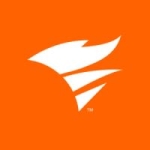What is our primary use case?
Our primary use case of Meraki Dashboard is to manage networks, whether our own or those of our customers. We also manage the firewalls through the portal as well as switches, wireless access points or whatever devices there are. Meraki controls the devices, configures them and also troubleshoots. I'm a senior solution architect and we're a Cisco partner, specifically for the Meraki brand.
How has it helped my organization?
The solution saves us a lot of time. They say work smarter, not harder, and Meraki allows us to do that and not waste time on issues that previously concerned us. Meraki is pretty much the leader in cloud-based technology when it comes to networks and they've saved us and our clients a lot of time.
What is most valuable?
It's great that everything is in a single pane and you can look at your network in one centralized place. I also value the ability to troubleshoot network issues through the solution. For example, you can do a cable test off their switch port from the portal even if you're not on-site. If I want to know whether the data cable is good, I can run a test through the portal, then the switch, and it'll come back and tell me whether that cable is good or has been damaged.
They also have a nice system included for firmware updates and numerous good logging files and many features that help whenever something goes wrong. As a pivot onto the security aspect, if you have their Advanced Security License, then they monitor for you. Cisco has lots of different security teams, and they're able to almost make network security a passive thing. As long as I have the right license and have it configured, it catches malware, and will stop a user from downloading a file that's malicious software. In addition, they have a lot of group policy features. You can assign specific users on the network to group policies that either give them access to or bar them from specific things.
The positives are all about the ease of being able to see everything, the ability to troubleshoot and for the solution to passively stop malicious events without me having to do a whole lot of work.
What needs improvement?
The client VPN could use some help, but that's probably partially Microsoft's fault because of the Windows client for VPNs, which keeps changing. Meraki don't have their own software for connecting to the VPN so you have to use the Windows one. It would be great for them to create a client for users to install to connect to the client VPN server. It's one of the biggest complaints about Meraki.
For how long have I used the solution?
I've been using this solution for about three years.
What do I think about the stability of the solution?
The solution is stable, it's only been down once or twice in three years and even then it was for a short amount of time and it wasn't completely down, just aspects of it. It's very stable. If a customer has an issue with their network log, we get an alert and check what's going on.
What do I think about the scalability of the solution?
The product is very scalable and I've never had an issue. They have a ton of networks around the world that are all on the portal. In our own company, we have two users dealing with maintenance and we use the solution every day. Some of our larger customers have over a hundred employees and it works well.
How are customer service and technical support?
Technical support does a great job. They have a support portal when you're logged in, you can either call a number, or open a ticket and they're onto it quickly. They usually resolve or respond with helpful information within an hour.
Which solution did I use previously and why did I switch?
I've worked with Aruba Cloud, they have a different type of cloud portal. I've also worked with regular Cisco, not the Meraki side and HP which bought Aruba, so some of that is now the same. We've also dealt with UniFi Dashboard from Ubiquiti, which is a cheaper brand that doesn't really compare but is for anyone on a tight budget.
How was the initial setup?
As long as you understand how it works, the initial setup is very easy and you can configure the network before the devices come in, because they put them in your dashboard and you plug it in when you're ready and it automatically does the work. This is the easiest system I've used and I've worked with most of them. It saves a lot of time because they have lots of templates and abilities to clone configurations from other sites. We're consultants so we did the integration for our company, although Meraki have sometimes helped out on projects.
What's my experience with pricing, setup cost, and licensing?
The license is not cheap as you have to pay a fee for each device but in return they provide good support. If you're buying a Meraki firewall, then you have to buy a license or it won't work. There are options for an annual, three-year, five-year or 10-year license and they have three different lines; the Enterprise Baseline License, the Advanced Security License, and then they have an SD-WAN Plus License, which is the top line license.
The three-year license is about one-third of the price of the actual hardware so if you have a $1,000-$1,200 piece of equipment, then the base license is about $300 for three years for the firewall. Access points are a separate license. It depends on what you're buying. There are 25 to 30 different products and they have different lines of each product.
It can get complicated. They have a top-of-the-range firewall, the MX250, which runs to $20,000-$30,000, and a license for it can be close to $10,000 for three years. They don't actually charge you a license for the dashboard, you get it when you pay for the license for all the hardware.
What other advice do I have?
It's important to find a good partner to work with and to plan what you actually plan to do, and understand what you're buying. There are so many different options with Meraki and you can end up spending more money than you actually need to. We've been educating our customer base about why they should spend more money on their networks and migrating them to Meraki because it's a very good solution.
The solution saves me a lot of time and there aren't many negatives so I rate it nine out of 10.
Which deployment model are you using for this solution?
Hybrid Cloud
If public cloud, private cloud, or hybrid cloud, which cloud provider do you use?
Other
Disclosure: My company has a business relationship with this vendor other than being a customer. Partner

















